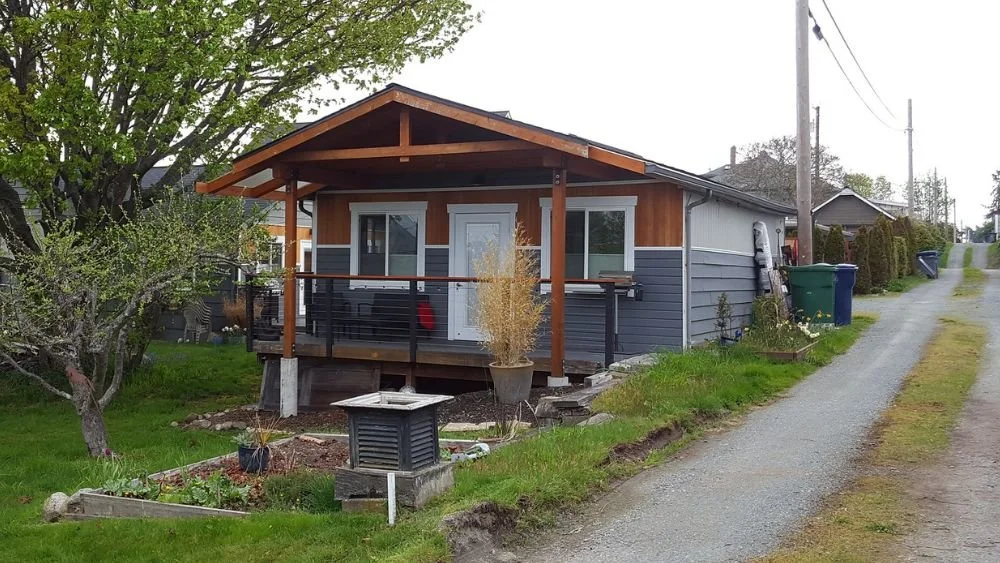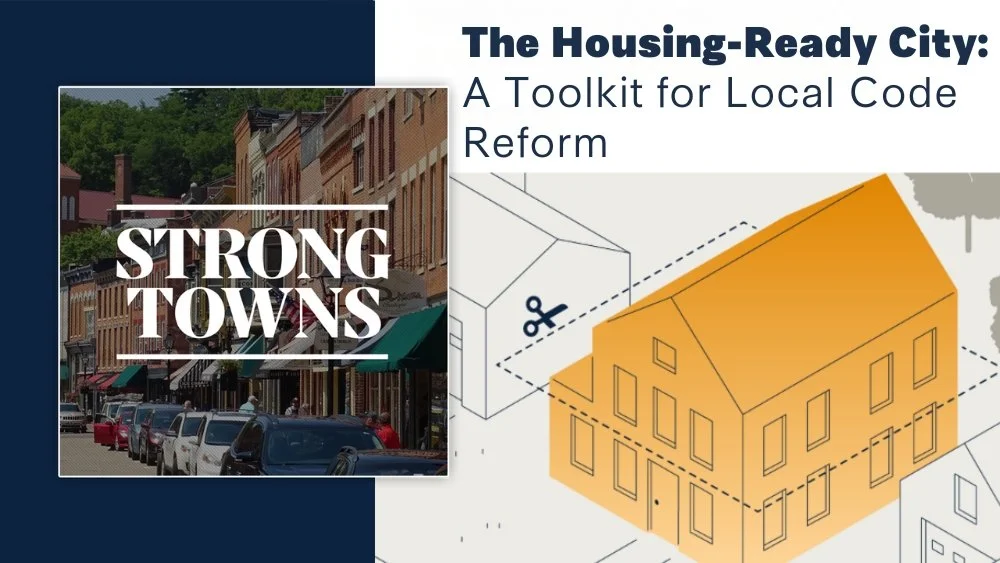Ryan Andrews is the CFO of a small-scale development company and capital fund in Bend, Oregon. In this episode, he discusses the importance of local investment and explains how to channel the profits from housing development back to locals. (Transcript included.)
Read MoreFor years, housing production has systematically privileged corporate developers while shutting out everyone else. But cities are starting to change that. In Tennessee, this change is taking the form of a new process for preapproved plans.
Read MoreIn this episode, Chuck explains that we’ve created a political climate where you either take a chainsaw to failing systems or you refuse to acknowledge that they’re failing. He then shows how the Strong Towns approach offers a better way. (Transcript included.)
Read MoreMany of incremental development’s values — localism, quality and civic pride — align well with those of houses of worship. If faith communities embrace this model, we could see a wave of faith-based housing that complements the broader movement toward incremental development.
Read MoreDavid Jenkins is a city councilor and Local Conversation leader in La Plata, Maryland. He joins Norm to discuss his work with the city’s budget, particularly his efforts to share financial information in a simple way that lets residents participate in the budgeting process. (Transcript included.)
Read MoreMany city officials are struggling to provide affordable housing for their communities. In Denver, a group of city officials, community leaders and nonprofit organizations decided to try something different.
Read MoreThriving places are built by the people who live in them, and the strongest reforms are ones that empower these people to shape their own futures. Here are some of the people who are thriving because of their cities' empowering housing policies.
Read MoreThe Suburban Experiment killed the starter home. Here's how cities can bring it back to life.
Read MoreMany people think that increased efficiency and economies of scale in the housing market are the key to affordability. However, these benefits are not actually appearing. We do need innovation, but not in the form of new interest rate manipulations or complex securitization schemes.
Read MoreAcross North America, parking mandates harm businesses, residents and cities. Fortunately, a rapidly growing number of cities are questioning these requirements, inching toward reforming or even repealing them altogether. Here are some of the communities that are rethinking their approaches.
Read MoreJosh Stewart is an advocate from Littleton, Colorado. A year ago, his 12-year-old son was struck and killed by a car while biking to school. Since then, Josh has been relentlessly pushing for safer streets in his community. He joins Norm today to share his story and what he’s learned over the last year of advocacy work. (Transcript included.)
Read MoreZoning codes across the country attempt to define what a "family" is, often in ways that are not only outdated but also legally tenuous at best. Instead of pretending we can enforce arbitrary definitions of family, let’s focus on what actually impacts people's lives.
Read MoreDr. Jonathan Gingrich is a professor of engineering at Dordt College in Iowa. Unsatisfied with the standard materials for his transportation engineering class, he incorporated safe street design, including having his class conduct a Crash Analysis Studio. He joins today’s episode to talk about how he did this and the benefits it had for his students. (Transcript included.)
Read MoreJust as a fragile ecosystem can wither without the right conditions, our housing system is struggling under the weight of imbalance. But small, intentional shifts can restore stability. The seeds of change are already planted. It’s time to cultivate them.
Read MoreWhen a development project dares to break the Suburban Experiment mold, it faces intense scrutiny from both opponents and advocates. Ironically, these are the very projects we should be studying — and even celebrating. Culdesac Tempe, a car-free community in Arizona, is one such project.
Read MoreCo-hosts Abby Newsham and Chuck Marohn discuss the challenges faced by Victoria, Prince Edward Island, a town of 139 residents. They talk about how very small towns like Victoria show the absurdities of the Suburban Experiment best — and feel its consequences most keenly. (Transcript included.)
Read MoreOn January 13, 2025, the city council of Bellingham, Washington, eliminated parking mandates citywide. This decision is a key step in reducing barriers to housing development.
Read MoreWith office vacancies and housing needs at record highs, converting one into the other seems like an obvious fix. However, office conversions are very difficult and expensive. Cities would get better results by enabling incremental development.
Read MoreBack in September, Sacramento became the first city in California to allow multiunit housing in all residential neighborhoods. Here’s what that means for residents seeking housing.
Read MoreChuck is joined by Seth Zeren, a neighborhood real estate developer, to discuss the six code reforms recommended in “The Housing-Ready City: A Toolkit for Local Code Reform.” (Transcript included.)
Read More



















